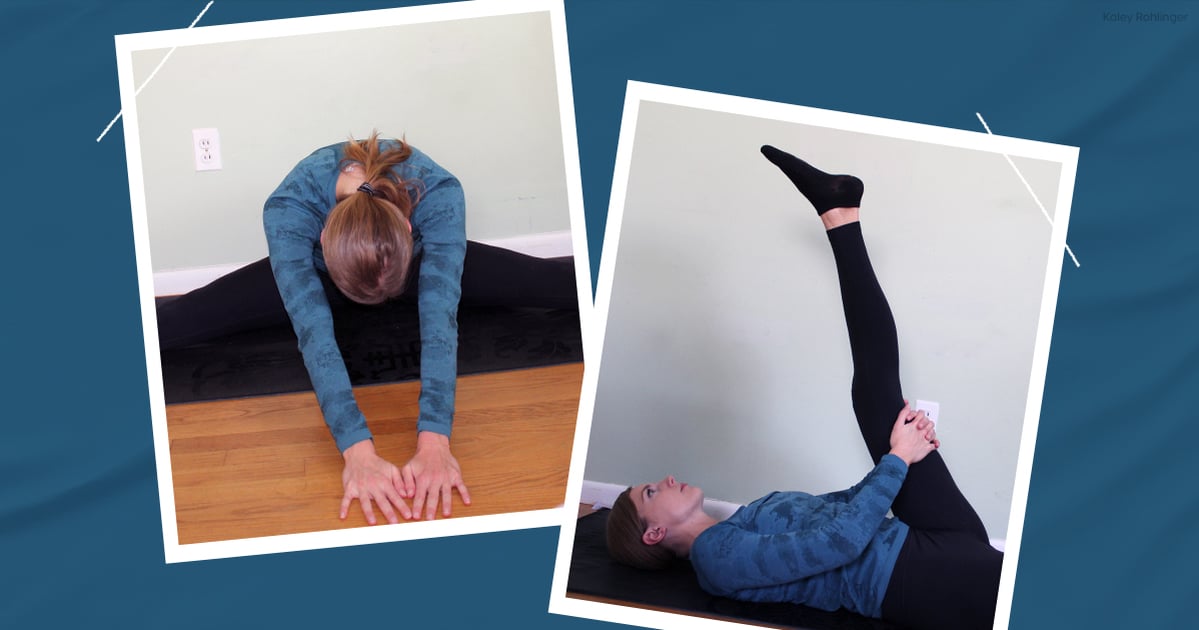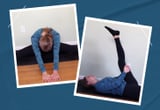Ever reached down to grab something off the floor, only to wince in pain or get stuck halfway down? If so, tight hamstrings are one of the possible culprits – and you might benefit from learning how to stretch your hamstrings.
There are several causes of tight hamstring, but the number one culprit is, you guessed it, sitting with your knees bent all day. Thankfully, performing hamstring stretch exercises can help relieve any tightness or stiffness, as well as elongate and stretch your hamstrings so that there’s less tightness in the future. After all, underuse is another cause of tight, short muscles, so a few weekly stretch sessionsare a great way to combat this.
Even the best hamstring stretches won’t have the biggest impact unless you learn how to stretch your hamstrings properly. The best way to do that: hinge from the hips as you move through a stretch, rather than arching and rounding your lower back. Since your hamstring muscles are connected directly to your pelvis, this is important for making sure you’re stretching the actual hamstring muscle, and protecting your lower back from injury.
Read on for more information about why hamstrings can get so tight, plus personal trainer’s recommendations for the best hamstring stretches. Get ready to feel sweet, sweet hamstring relief.
What Causes Tight Hamstrings?
There are a variety of things that can make your hamstrings feel tight, says Chris Gagliardi, ACE-certified personal trainer. Injury and prolonged sitting are common culprits of tight hammies, as well as immobilization after injury, faulty motor control patterns, and potential genetic predisposition.
Grace Taylor, PT, DPT adds that weaknesses from other muscles like your quads and glutes can also cause tight hamstrings, since those weak muscles force your hamstrings to work harder. Conversely, underuse can lead to shortening of the muscle fibers, which in turn leads to overall muscle tightness.
Prolonged sitting stays on the naughty list, but that doesn’t mean we can’t undo its effects on our hamstrings.
Why Is Having Flexible Hamstrings Beneficial?
“Having tight hamstrings alters the way your body moves and functions,” says Gagliardi. “The hamstrings need the ability to shorten and lengthen in order for your knees and hips to move properly.”
Tight hamstrings reduce your ability to reach the ground, which can place more stress on your back if you’re frequently bending over or lifting heavy objects, adds Taylor. As noted earlier, your hamstring muscles also attach directly to your pelvis, so if they’re tight, they can negatively influence the position of your hips and spine. Both trainers agree that this can affect your posture, and Gagliardi adds that tight hamstrings can also impair your athletic performance, particularly speed, agility, and power.
Best Hamstring Stretches
Movement is crucial for opening tight hamstrings, says Gagliardi, and so is reducing the amount of time you spend sedentary. Muscles have a tendency to tighten from overuse or from underuse, adds Taylor, so it’s beneficial to mobilize the tissues (with massage, a foam roller, massage gun) and static and dynamic stretches.
Gagliardi and Taylor provided recommendations for the best hamstring stretches, ahead. In terms of how stretch your hamstrings safely, make sure to only stretch to the point of slight discomfort. Never push past that point to where you’re feeling pain.
Static stretching is most beneficial when held for 30 seconds, and it’s better to stretch twice for 30 seconds instead once for 60 seconds, says Taylor. Both trainers recommend aiming for two to three stretch sessions per week. Keep reading to find the best hamstring stretches to incorporate into your workout routine.




